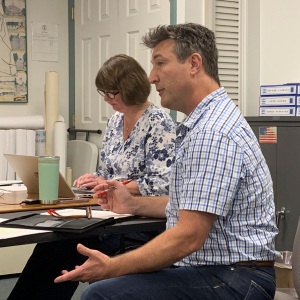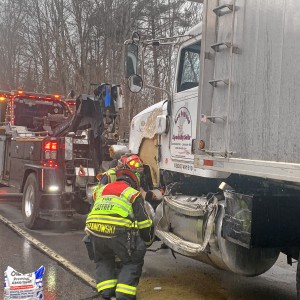Business Quarterly: Jo Anne Carr – Steps towns can take to increase housing
| Published: 04-25-2023 12:43 PM |
It seems to me we have covered a lot of territory on the housing conversation. We know that there is a housing shortage nationwide, Freddie Mac, the federal home loan mortgage company, estimates a shortage of nearly 4 million units. And statewide, the NH Housing Finance Authority estimates a need of up to 20,000 units by the end of the decade.
A recently completed housing needs assessment for the Monadnock region (swrpc.org/housing) by the Southwest Region Planning Commission supports these findings on a more local level.
Over the years, zoning has been called out as the big culprit in creating workforce housing. While there are local ordinances which do form obstacles to permitting workforce housing such as large lot minimums, exclusionary zoning and NIMBYism (do I have to explain), I have observed that rezoning alone won’t get us to meet the workforce housing challenge.
Upzoning, which allows increased density per acre without some requirement to include workforce housing, will just promote more higher-end market-rate units. This is what the market and investors dictate. It is reasonable to assume that the costs of development need to be recovered by the return on investment; the cost of the land, labor, construction materials and local ordinances all contribute.
If zoning isn’t the answer, then what other tools are in the box? Let’s start with available inventory. Conduct a housing asset inventory for your downtown. Investigate vacant spaces and ownership. Are the spaces up to code? What would it take to bring them to code? What are the current lease rates for residential and commercial space in your community?
Assemble any other information that you can glean from the property records such as year built or historic designation. Then develop your contact list and share information with potential investors. Main Street could provide a source for housing in vacant and underutilized spaces, such as second or third floors or other vacant areas within the building. Many of these properties are locally owned, so reach out to the property owners and focus on their interests and bottom line. Facilitate their investment into full occupancy of their buildings.
What about financing options? What can you do locally? What can we offer developers? Here’s some tools we’ve tested in Jaffrey.
■Adopt local property tax relief through Chapter 79-E, which provides for municipal property tax relief for those developments providing a “public benefit,” which includes housing. In addition, Housing Opportunity Zones under 79-E:4-c provide property tax relief for developments which create housing units accessible for those households earning 80 percent or less of the area median income (AMI).
Article continues after...
Yesterday's Most Read Articles
 ‘Dork Dancing’ coming to Depot Square in Peterborough
‘Dork Dancing’ coming to Depot Square in Peterborough
 Sixteen-unit development draws ire from neighbors in Jaffrey
Sixteen-unit development draws ire from neighbors in Jaffrey
 Tour de Francestown has a new twist
Tour de Francestown has a new twist
 ConVal officials propose one athletic director position
ConVal officials propose one athletic director position
 Katalina Davis dazzles in Mascenic shutout win
Katalina Davis dazzles in Mascenic shutout win
 UPDATE: Drivers identified in Jaffrey dump truck crash
UPDATE: Drivers identified in Jaffrey dump truck crash
■NH Housing Finance Authority (nhhfa.org) offers tax credits and low-interest bonds for developers, as well as several additional programs. NH HFA also provides home-ownership assistance for first-time homebuyers and rental assistance for those low- and moderate-income families. The state budget is currently pending hearings in the state Senate, including adding $30 million to the affordable housing fund.
■Is your downtown a Historic District? Property owners of designated buildings can access historic preservation funds through the National Park Service and Federal Historic Preservation Tax Incentives. Check in with the NH Division of Historical Resources (nh.gov/nhdhr/programs/tax_incentives.htm).
■Housing incentives through the NH Department of Business and Economic Affairs include funding for capital investments for developers of multifamily housing, municipal per-unit, demolition and planning and zoning grants.
■Community Development Block Grants for housing support affordable housing and housing rehabilitation efforts that benefit low- and moderate-income homeowners and tenants (resources.nhcdfa.org/programs/community-development-block-grant).
■Local banks/land trusts or community housing trusts, as well as real estate investment trusts can be a vehicle for donors and investors to support residential development. There are numerous resources to access for more information, too many for an article such as this. I direct you to the Manchester Housing Alliance Land Trust in Manchester and the Contoocook Housing trust based in New Ipswich and serving 13 towns in the Monadnock region.
Mostly, stay in touch with neighboring communities, the Regional Planning Commission (swrpc.org) and talk to your developers and property-owners.
Jo Anne Carr is director of planning and economic development for the Town of Jaffrey, with 30 years of planning experience throughout New England.


